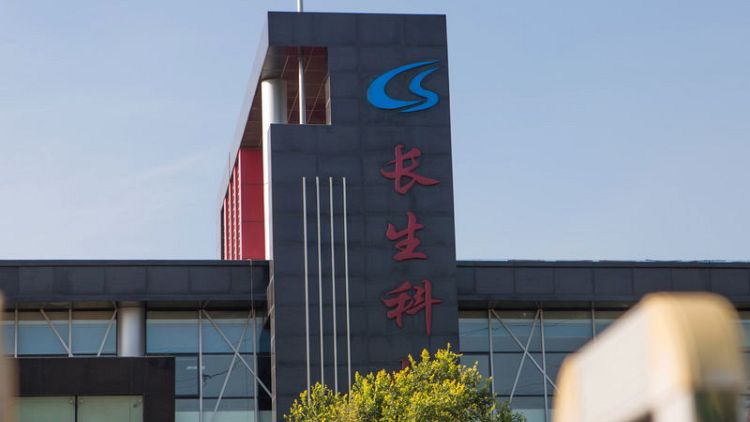SHANGHAI (Reuters) - China's cabinet vowed tough penalties and fines for firms and individuals involved in a vaccine safety scandal that has sparked widespread public anger, according to a notice posted late on Monday.
China has already ordered the arrest of 18 people at Changsheng Bio-technology Co Ltd, the vaccine maker at the heart of the scandal, including its chairwoman Gao Junfang.
The firm was found to have falsified data and sold ineffective vaccines. It also fabricated production and inspection records relating to a rabies vaccine used for infants. Changsheng has previously apologised publicly for the incidents.
A meeting of the State Council chaired by Premier Li Keqiang on Monday said enterprises and individuals should be severely punished and banned from the pharmaceutical industry for life.
It ordered further investigations to determine the criminal responsibility of other serious offenders involved in the Changsheng case.
It also called for a full investigation into any potential regulatory failings involved in the case, including possible dereliction of duty by officials, and said a long-term mechanism should be established to ensure public safety.
A special cabinet investigation team said on Friday Changsheng had systematically falsified production and testing records to avoid regulatory scrutiny, and had also sold 252,600 doses of ineffective DPT vaccines to inoculate children against diphtheria, whooping cough and tetanus.
In a report on Tuesday, Fitch Ratings said the scandal highlighted the risks facing China's pharmaceutical companies, which focus primarily on the bulk production of a small number of products, making them vulnerable to safety incidents.
"Concentration on low-quality generic drugs, high product concentration and heightened regulatory risks will continue to constrain most Chinese drug makers' business profiles to non-investment grade levels," it said.
(Reporting by David Stanway; Editing by Paul Tait and Muralikumar Anantharaman)
